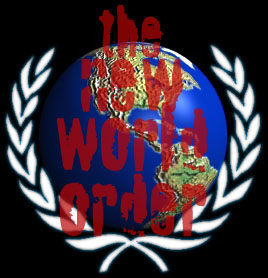
Tony Blair's New International Order
**********************************************
Courtesy Of: The Independent
By Rupert Cornwell in Washington
Published: 27 May 2006
Tony Blair set out a sweeping blueprint yesterday for a new international order, built around an overhauled United Nations, an enlarged G8, and a multilateral system for the supply of enriched uranium for peacful nuclear energy.
...It was built around a single overreaching theme: that the challenges of today's interdependent world meant that countries had to act together and, in some cases, that action had to be pre-emptive not reactive.
...The heart of the Georgetown speech was Mr Blair's vision of a new international system, complete with a more effective system not only to respond to crises, but to head them off in advance.
"Increasingly there is a hopeless mismatch between the global challenges we face and the global institutions to confront them," said Mr Blair.
New international architecture had been required after the Second World War, he noted. "In this era, we need to renew it."
The centerpiece of what the Prime Minister termed his "tentative suggestions for change" is an overhaul of the United Nations and its sister organisations, the World Bank and the International Monetary Fund (IMF), and of the G8 group of major powers, now a de facto parallel directorate to oversee world affairs.
The plan has six points:
- Security Council changes to bring in countries such as Germany, Japan and India.
- New powers for the UN Secretay General, especially to appoint top officials in the secretariat and to allocate UN resources.
- A possible merger and sweeping reform of the IMF and the World Bank.
- A multilateral system for "safe enrichment for nuclear energy, featuring a "uranium bank" run by th International Atomic Energy Agency (IAEA).
- An expanded G8, that includes China, India and Brazil among others.
- A UN Environment Organisation that reflects environmental issues.
Mr Blair pointed to how unrepresentative the current structure of the Security Council had become.
A council "which has France as a permanent member but not Germany, Britain but not Japan, China but not India, to say nothing of the absence of proper representation from Latin America and Africa, cannot be legitimate," he said.
...Much the same applied to the World Bank and the IMF, in Mr Blair's view. While the Bank should remain focused on fighting poverty, the IMF "must become representative of emerging economic powers and give greater voice to developing countries."
To read the complete article:
http://news.independent.co.uk/world/politics/article620246.ece




No comments:
Post a Comment